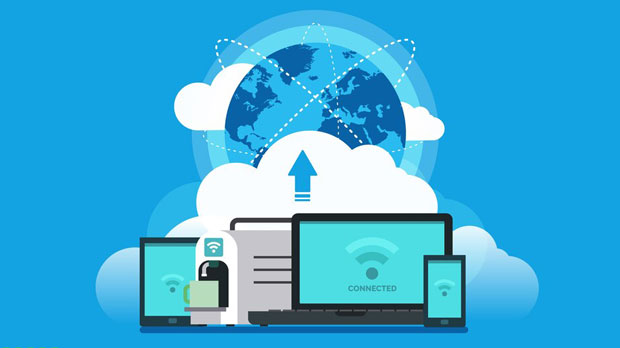Self-managed proxies, a fundamental technology for businesses today, are designed to provide companies with the autonomy to control and manage their operations without relying heavily on external IT support. However, as businesses grow and scale, the question arises: can these self-managed systems handle the ever-increasing complexities and requirements of enterprise-level operations? In this article, we will analyze whether self-managed proxies are capable of fulfilling the scalability demands of large enterprises, focusing on critical factors such as performance, security, customization, and integration. 1. Performance and Efficiency in Enterprise EnvironmentsPerformance is a key consideration when evaluating self-managed proxies for enterprise-level use. As enterprises grow, the volume of data and transactions handled increases exponentially. A self-managed proxy needs to efficiently handle large-scale operations while maintaining a high level of responsiveness and speed. In smaller systems, self-managed proxies might work seamlessly, but enterprises often require complex, multi-layered infrastructure that can involve multiple departments and locations.When scaling to enterprise levels, performance bottlenecks are common. Self-managed systems may struggle with the increased load, causing delays, inefficiencies, and downtime. However, businesses can mitigate these issues by optimizing self-managed proxies to better handle higher capacities. Advanced features like load balancing, real-time analytics, and cloud-based infrastructures can help improve scalability. The tradeoff, however, is the need for skilled IT professionals to constantly monitor and fine-tune these systems, which could lead to increased costs.2. Security and Compliance ChallengesSecurity is another critical factor for enterprises. As the size of a company grows, so does the potential attack surface. Self-managed proxies need to be robust in terms of data protection, threat detection, and regulatory compliance. In enterprise environments, data often needs to comply with industry regulations such as GDPR, HIPAA, and others. Self-management introduces the responsibility of ensuring that all security measures are continuously updated and maintained.For businesses that deal with sensitive customer data or are involved in highly regulated industries, the self-management approach can be a double-edged sword. While companies may appreciate the control self-management offers, they also bear the full responsibility of security. Outsourcing to third-party vendors or relying on fully managed services might provide better security guarantees. However, enterprises may choose to implement additional security measures such as automated patching, encryption, and multi-factor authentication within self-managed systems to address vulnerabilities.3. Customization and Flexibility for Diverse NeedsEnterprises often have unique operational needs that require customized solutions. Self-managed proxies, being inherently more flexible, offer companies the ability to tailor the system to fit their specific requirements. This level of customization is vital for large organizations that operate in diverse sectors or geographical regions. The ability to modify configurations, workflows, and policies can make a significant difference in streamlining enterprise operations.While this flexibility is an advantage, it comes with its own set of challenges. Customizing self-managed proxies requires deep technical expertise, and frequent updates or changes may introduce compatibility issues. Additionally, as companies expand, they might find that their previously customized solutions no longer meet the needs of a larger, more complex organization. In such cases, scaling or upgrading the system could be time-consuming and costly. Therefore, although self-managed proxies offer customization, enterprises must carefully evaluate whether they have the necessary resources to support ongoing adjustments.4. Integration with Legacy Systems and Third-Party ToolsEnterprises frequently use legacy systems and a variety of third-party tools for different aspects of their operations. For self-managed proxies to meet the needs of large-scale enterprises, they must be able to integrate seamlessly with these existing systems. The ability to create connections between disparate systems is crucial for maintaining business continuity and avoiding operational silos.Integrating self-managed proxies with legacy systems can be complex, particularly if the systems are outdated or poorly documented. In some cases, businesses may need to invest in additional resources or develop custom APIs to enable effective integration. Self-managed proxies must be flexible enough to support integration with a variety of external platforms, from CRM tools to supply chain management systems. However, enterprises should assess whether the additional integration requirements will add complexity or delays to the deployment process.5. Cost Considerations and Resource AllocationOne of the advantages of self-managed proxies is that they can reduce the need for third-party services, which may lead to cost savings in certain scenarios. Enterprises that already have a capable IT team can deploy self-managed systems without the need for continuous external support. Additionally, self-management allows businesses to avoid paying for services they may not need.However, enterprises must also consider the hidden costs of self-management. Large-scale implementations require dedicated resources for system monitoring, troubleshooting, and maintenance. Companies may need to invest in specialized software, hardware, and additional training for their IT staff. Additionally, if performance or security issues arise, addressing them in-house can lead to delays and increased operational costs. Therefore, while self-managed proxies can reduce direct outsourcing costs, the hidden costs of maintaining and scaling the system can offset these savings.6. Conclusion: Is Self-Managed Suitable for Enterprise-Level Needs?In conclusion, self-managed proxies have the potential to meet the scalability demands of enterprise-level organizations, but they come with both advantages and limitations. For businesses with strong technical expertise and resources, self-managed proxies offer flexibility, control, and customization. However, they also require careful management of performance, security, integration, and ongoing updates.Enterprises must weigh the benefits of control and cost savings against the complexities of self-management. If a company lacks the necessary IT resources or faces rapid growth, it might find fully managed services or hybrid models more suitable. Ultimately, self-managed proxies can meet the needs of enterprises, but only if they are carefully configured, maintained, and supported by a capable team.
Nov 10, 2025


































































